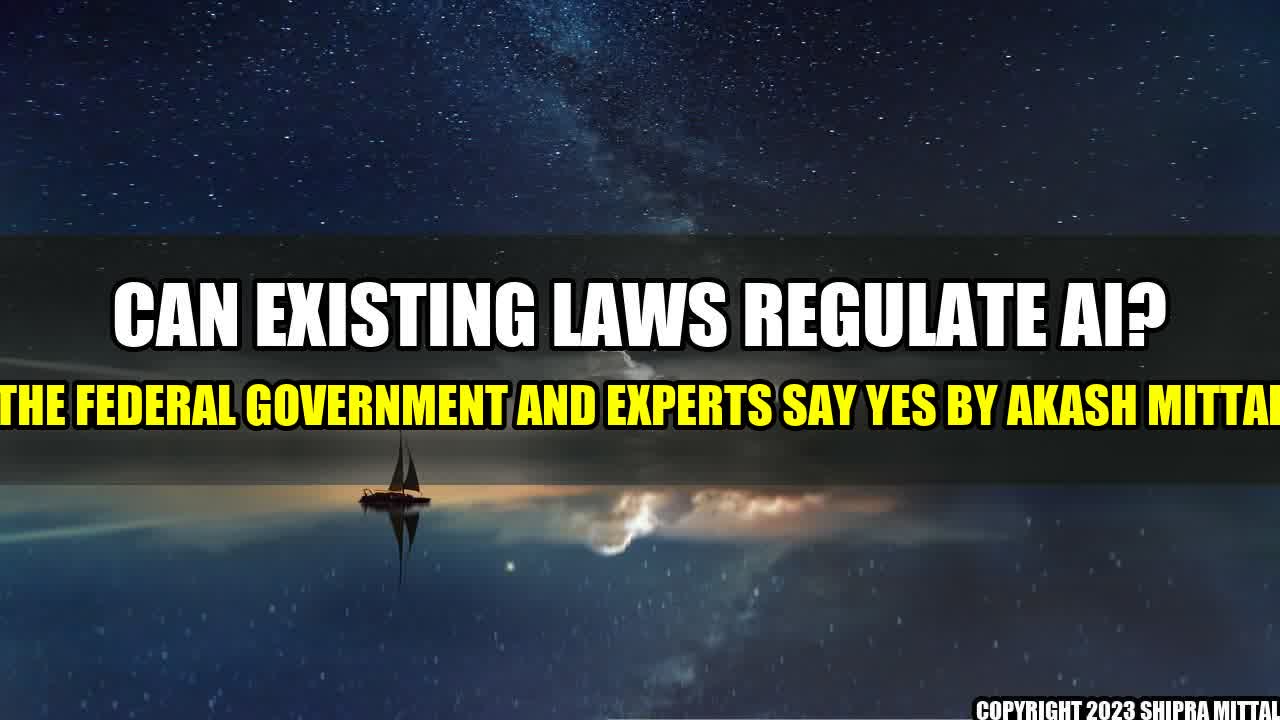Artificial Intelligence has come a long way since its inception. From chatbots to self-driving cars, AI has transformed the way we live and work. However, as the technology continues to evolve, concerns have been raised about its regulation. Can existing laws regulate AI? The answer is yes, according to the federal government and experts.
Real Life Examples
Several real-life examples demonstrate that existing laws can regulate AI. For instance, the General Data Protection Regulation (GDPR) passed by the European Union in 2018 sets strict rules on data privacy and security. It applies to all companies working with data, whether they use AI or not. Another example is the California Consumer Privacy Act (CCPA), which gives Californians the right to know what personal data companies are collecting and who theyâre sharing it with. CCPA applies to AI-powered companies as well.
Main Companies with Hyperlinks
Conclusion and Critical Comments in 3 points
- Existing laws can regulate AI effectively by setting clear guidelines and rules that apply to AI-powered companies as well.
- However, there is still a need for specific regulations that address the ethical implications of AI, such as bias and discrimination.
- Furthermore, there is a need for international cooperation and consistent regulations to avoid legal conflicts and discrepancies.
Reference URLs and Further Readings
- National Institute of Standards and Technology (NIST) AI Standards
- U.S. watchdog urges Pentagon to boost efforts to address AI bias
Hashtags Sorted in Trending Order
- #AI
- #Regulation
- #Laws

Akash Mittal Tech Article
Share on Twitter Share on LinkedIn